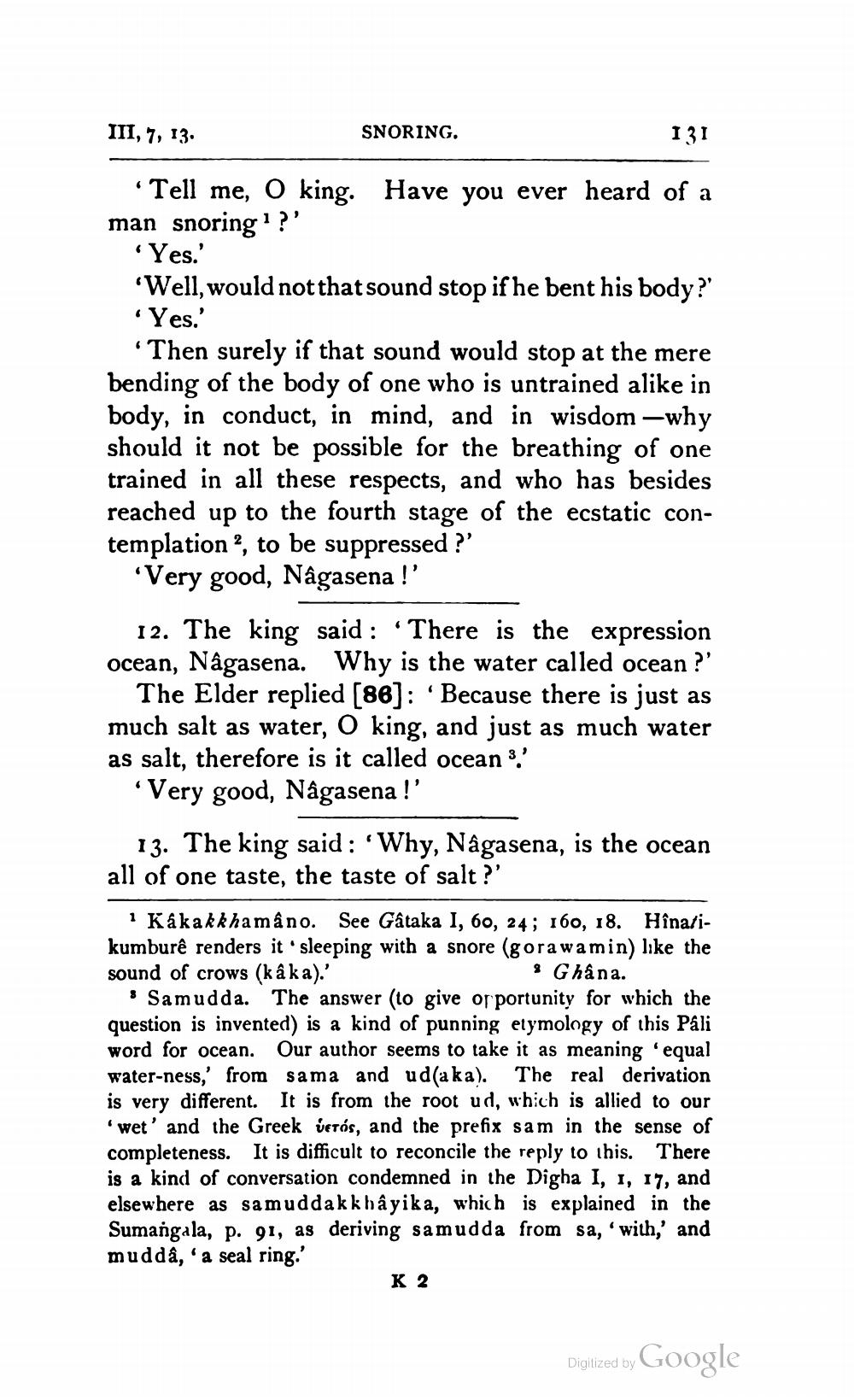________________
III, 7, 13.
SNORING.
131
'Tell me, O king. Have you ever heard of a man snoring'?'
'Yes.'
'Well, would not that sound stop if he bent his body?' 'Yes.'
'Then surely if that sound would stop at the mere bending of the body of one who is untrained alike in body, in conduct, in mind, and in wisdom-why should it not be possible for the breathing of one trained in all these respects, and who has besides reached up to the fourth stage of the ecstatic contemplation 2, to be suppressed?'
'Very good, Nâgasena !'
12. The king said: 'There is the expression ocean, Nâgasena. Why is the water called ocean?'
The Elder replied [86]: Because there is just as much salt as water, O king, and just as much water as salt, therefore is it called ocean 3.'
'Very good, Nâgasena!'
13. The king said: 'Why, Nâgasena, is the ocean all of one taste, the taste of salt?'
1 Kakakkhamâno. See Gâtaka I, 60, 24; 160, 18. Hîna/ikumburê renders it sleeping with a snore (gorawamin) like the sound of crows (kâka).' Ghana.
Samudda. The answer (to give opportunity for which the question is invented) is a kind of punning etymology of this Pâli word for ocean. Our author seems to take it as meaning 'equal water-ness,' from sama and ud(aka). The real derivation is very different. It is from the root ud, which is allied to our 'wet' and the Greek verós, and the prefix sam in the sense of completeness. It is difficult to reconcile the reply to this. There is a kind of conversation condemned in the Digha I, 1, 17, and elsewhere as samuddakkhâyika, which is explained in the Sumangala, p. 91, as deriving samudda from sa, 'with,' and muddâ, 'a seal ring.'
K 2
Digitized by Google




